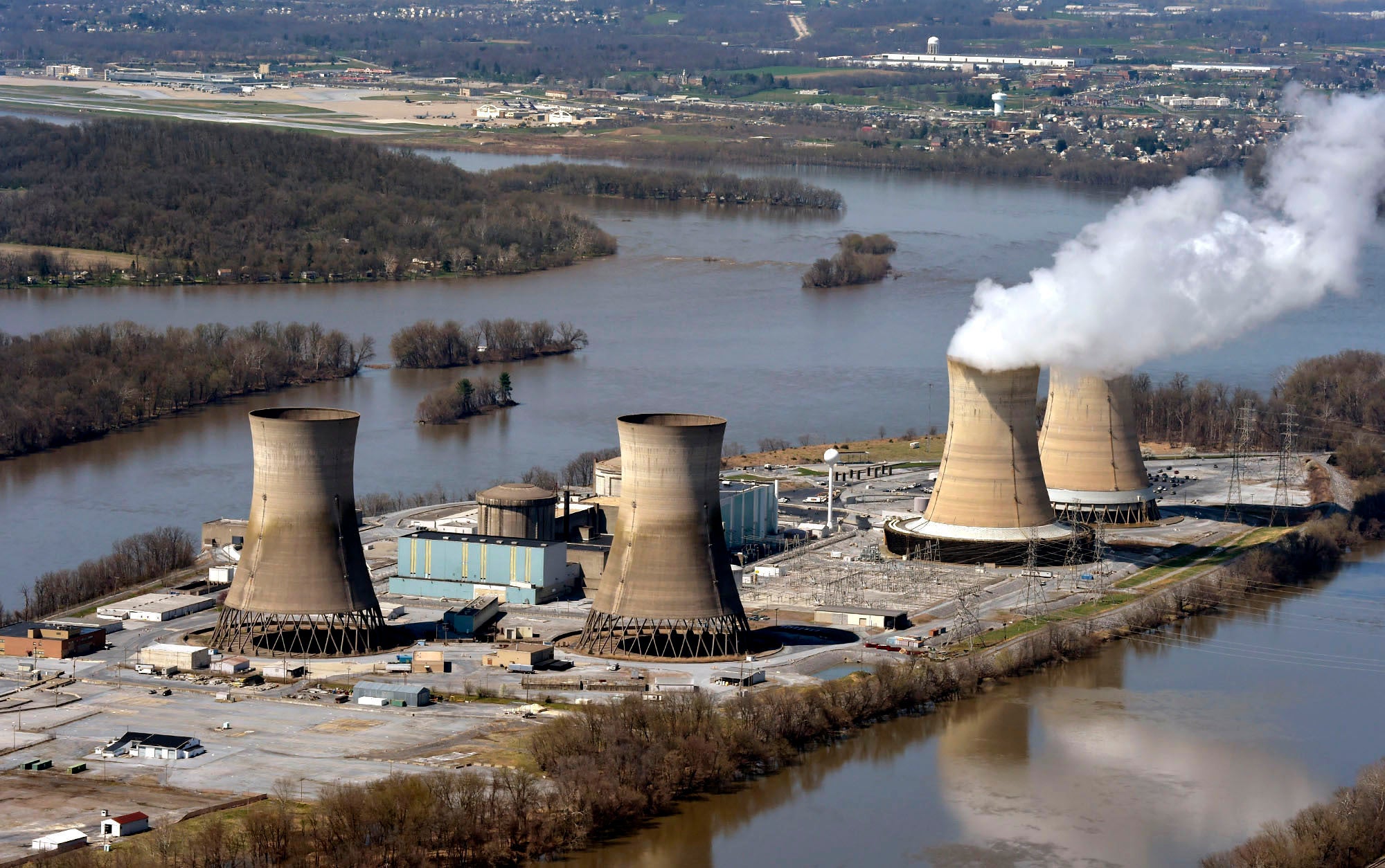Tech companies are signing nuclear deals because AI is sucking up too much energy
Amazon, Microsoft, and Google parent Alphabet have all signed recent deals to supply companies with nuclear power
Major tech companies are going all-in on nuclear energy to power their growing artificial intelligence ambitions.
Last month, Microsoft inked a deal to buy 20 years worth of power from Constellation Energy via the soon-to-be reopened reactor at Three Mile Island, the Pennsylvania facility previously known for its partial meltdown in 1979, the worst reactor accident in U.S. history.
On Monday, Google announced what it called a “world’s first” agreement with Kairos Power to buy energy from small modular nuclear reactors (SMRs) the company will develop, with the first SMR set to come online in 2030.
And most recently, Amazon has perhaps taken the biggest step of the trio, signing three deals to supply the retail and cloud giant with nuclear power, including an agreement to develop four SMRs with Energy Northwest in Washington, joining in a $500m financing round with X-energy to develop “next-generation SMR reactors and fuel,” and an agreement with utility Dominion Energy explore developing an SMR project in Virginia.
Energy watchers said Amazon’s partnerships are particularly notable.
“This is Amazon saying, We’re in, and we need this, and we’re putting skin in the game directly,” Brett Rampal, a senior director at energy advisory company Veriten, told Heatmap news.

Such moves will be instrumental for the Big Tech troika as they continue to invest in energy-hungry artificial intelligence technologies while also pursuing ambitious renewable energy goals.
Michael Terrell, senior director for energy and climate at Google, told CNBC the recent agreement was both a way to “deliver on the progress of AI” and “play an important role in helping to meet our demand, and helping meet our demand cleanly, in a way that’s more around the clock.”
“Nuclear is a safe source of carbon-free energy that can help power our operations and meet the growing demands of our customers, while helping us progress toward our Climate Pledge commitment to be net-zero carbon across our operations by 2040,” Matt Garman, CEO of Amazon Web Services (AWS), said of the retailer’s recent move. “One of the fastest ways to address climate change is by transitioning our society to carbon-free energy sources, and nuclear energy is both carbon-free and able to scale—which is why it’s an important area of investment for Amazon.”
Both the three companies’ own operations and those of their cloud customers rely on massive, energy and water-hungry data centers to work on emerging technologies like AI.
Energy use for data centers in the AI and cryptocurrency sectors is expected to more than double between 2022 and 2026, according to the International Energy Agency.
Meanwhile, one search query on ChatGPT, the popular AI model, reportedly uses 10 times as much electricity as a Google search. All that energy use adds up: more than 200 million people reportedly submit queries on ChatGPT each week.
By their own admission, energy-hungry projects such as these will play a major factor in whether the companies reach their climate targets.
Google acknowledged this summer that AI was partially responsible for its growing emissions footprint. The company saw a 13 per cent increase in emissions between 2022 and 2023. Compared to its baseline year of 2019, emissions were up 48 per cent.
“Reaching net zero emissions by 2030 is an extremely ambitious goal and we know it won’t be easy,” the company acknowledged in its annual sustainability report, released in July.
“Our approach will continue to evolve and will require us to navigate significant uncertainty – including the uncertainty around the future environmental impact of AI, which is complex and difficult to predict,” it added.
Amazon has similarly made mixed progress toward its climate pledge.
This summer, the company said it had met its goal of matching 100 percent of its electricity consumption with renewable energy, seven years ahead of a 2030 deadline.
It also announced a three percent drop in emissions between 2022 and 2023, though the company’s carbon emissions have grown roughly 34 percent overall since announcing the climate pledge in 2019, according to an analysis by The Verge.
Join our commenting forum
Join thought-provoking conversations, follow other Independent readers and see their replies
Comments